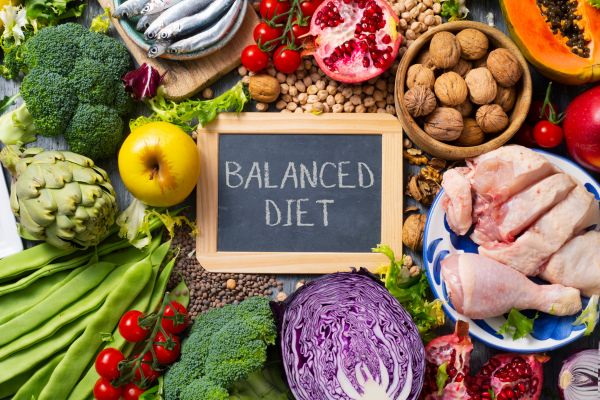In a world filled with dietary trends and ever-changing health advice, the phrase balanced diets remains a timeless cornerstone of wellness. But what exactly is a balanced diet, and why should it matter to you? Whether you’re striving for better energy levels, a stronger immune system, or long-term health, understanding the foundation of balanced eating is a powerful first step. A balanced diet isn’t about restrictions or fads; it’s about giving your body what it needs to thrive in a sustainable, enjoyable way.
Understanding the Concept of Balanced Diets
At its core, a balanced diet is one that provides your body with all the essential nutrients it needs to function effectively. These nutrients include carbohydrates, proteins, fats, vitamins, minerals, and water. Each plays a distinct role in maintaining bodily processes, supporting growth, and protecting against disease. Rather than focusing solely on cutting out certain food groups or obsessing over calorie counts, balanced diets emphasize variety, moderation, and quality.
The human body is a complex system that requires diverse inputs to operate smoothly. Just as a car needs a range of fluids and fuels to run efficiently, your body depends on different nutrients to power every cell, muscle, and organ. When you consume a wide array of nutrient-rich foods in the right proportions, you set the stage for optimal health and well-being.
The Role of Balanced Diets in Everyday Life
Many people underestimate the profound impact balanced diets have on daily performance and long-term health. The right mix of nutrients can significantly improve concentration, mood, sleep quality, and physical stamina. For children and teenagers, a balanced diet is essential for proper growth and cognitive development. For adults, it supports metabolic function, immune defense, and hormonal balance.
In contrast, poor dietary habits can lead to fatigue, frequent illness, and an increased risk of chronic conditions like heart disease, type 2 diabetes, and obesity. While it may be tempting to reach for convenience foods in a fast-paced world, these often lack the nutritional density required for lasting energy and health. Making intentional food choices that align with balanced diets can act as a protective shield, allowing you to function at your best both mentally and physically.
Why Variety Matters in Balanced Diets
One of the defining features of balanced diets is variety. No single food can provide all the nutrients your body needs, which is why consuming a range of different foods is crucial. Incorporating fruits and vegetables of various colors ensures a diverse intake of antioxidants and phytonutrients. Whole grains supply fiber and energy, while lean proteins contribute to muscle maintenance and repair.
Healthy fats, often misunderstood, are equally essential. Sources such as nuts, seeds, avocados, and olive oil offer fatty acids that support brain function and cardiovascular health. Including all of these food types in your daily meals creates a more satisfying and nutritionally complete eating pattern. Over time, this diversity not only improves health outcomes but also reduces the risk of developing food intolerances or deficiencies.
Portion Control and Moderation in Balanced Diets
Another cornerstone of balanced diets is moderation. It’s not just about what you eat, but also how much. Overeating even healthy foods can lead to weight gain and metabolic issues, while undereating can result in nutrient deficiencies and low energy. Understanding portion sizes and listening to your body’s hunger and fullness cues are essential practices in maintaining dietary balance.
Eating mindfully—slowing down to savor your meals—can also enhance digestion and prevent overconsumption. By focusing on the sensory experience of eating, you become more aware of the quality and quantity of food you’re consuming. This mindfulness aligns closely with the principles of balanced diets, encouraging a healthier relationship with food.
The Importance of Hydration in a Balanced Diet
Often overlooked in discussions about nutrition, water is a key component of balanced diets. Hydration supports nearly every bodily function, from regulating body temperature to aiding digestion and nutrient absorption. Drinking enough water helps maintain skin elasticity, reduces fatigue, and supports cognitive function.
While other beverages may provide hydration, water remains the most effective and calorie-free option. Consuming hydrating foods, such as fruits and vegetables with high water content, also contributes to overall fluid intake. Prioritizing water alongside a nutrient-rich diet ensures your body remains in peak condition throughout the day.
Adapting Balanced Diets to Different Lifestyles
There’s no one-size-fits-all approach when it comes to balanced diets. Personal preferences, cultural influences, and individual health conditions all play a role in shaping dietary needs. For example, athletes may require higher protein and calorie intake, while someone managing diabetes might focus more on regulating carbohydrate consumption. The beauty of balanced diets lies in their flexibility—they can be tailored to suit anyone, from busy professionals to growing children to seniors aiming to maintain bone strength.
Plant-based eaters can achieve dietary balance by thoughtfully combining legumes, grains, nuts, and seeds to meet protein and vitamin requirements. Similarly, those with food allergies or intolerances can work with nutrition professionals to ensure they’re not missing key nutrients. Regardless of the specific eating style, the principles of variety, moderation, and nutrient density remain universally applicable.
Balanced Diets as a Sustainable Lifestyle
Embracing balanced diets is not about temporary fixes or restrictive cleanses. Instead, it’s a long-term investment in your health and quality of life. Developing consistent habits—such as meal planning, reading food labels, and cooking at home—can significantly improve your ability to maintain balance. Over time, these practices become second nature, turning healthy eating from a chore into an enjoyable routine.
Moreover, balanced diets are inherently sustainable. They encourage whole, minimally processed foods that are often more environmentally friendly than heavily packaged alternatives. Choosing local and seasonal produce not only supports your health but also contributes to a more sustainable food system.
Final Thoughts on the Power of Balanced Diets
Balanced diets are more than just a dietary guideline—they represent a holistic approach to nourishing the body and mind. By prioritizing variety, moderation, hydration, and mindful eating, you create a lifestyle that supports vitality, resilience, and overall well-being. In a world of nutritional noise and confusion, the clarity and simplicity of balanced eating shine through.
Making the shift to balanced diets doesn’t require perfection, only intention. Start by becoming more aware of your food choices, and gradually build a routine that feels both nourishing and sustainable. The rewards—more energy, better health, and a greater sense of control over your well-being—are well worth the effort.



